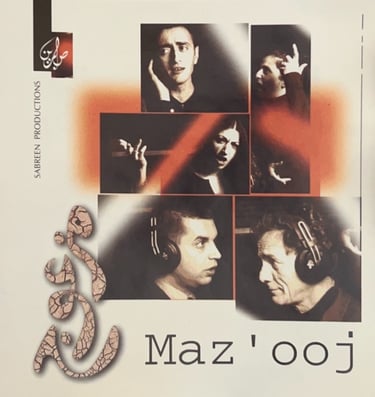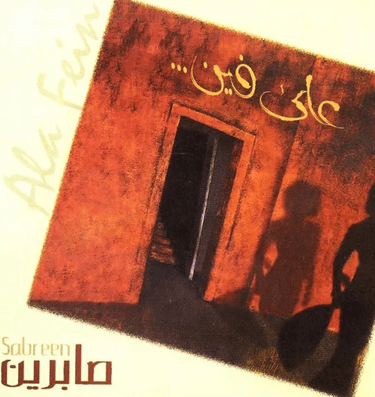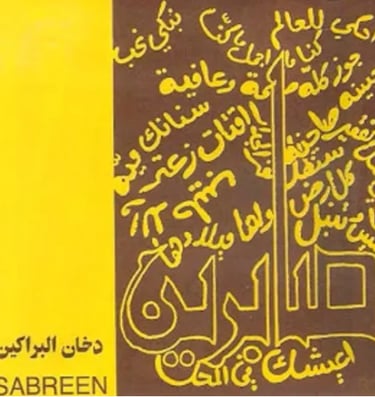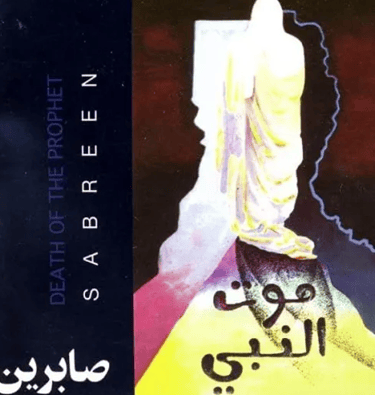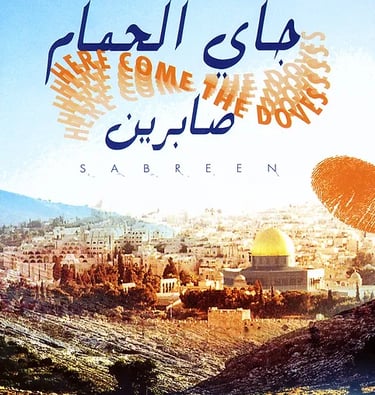
Sabreen The Music Band
About
A vision for music and a call for change; In 1980 Sabreen, or “Patient Ones” in Arabic, was formed as a pioneer Palestinian music band with the mission of revolutionizing local musical initiatives. For us Palestinians, Sabreen contextualizes our day to day living by choosing to remain steadfast while everything seems to be going in opposite directions. Sabreen's work infused compilations of classical and contemporary Arabic music and was also influenced by the improvisations of jazz, blues, and other music origins of the world. It weaves diverse elements into one continuous, harmonious weaving– perhaps the biggest contribution to the formation of the new Palestinian, the new Arab, and even the new Mediterranean identity.
Formed in Jerusalem in 1980, Sabreen is a Palestinian music group that set out with a vision to revolutionize the Palestinian modern sound by creating original, locally produced sound and music. Translating literally to “Patient Ones”, the story of Sabreen band is one that is tethered and intertwined with the ever evolving cultural and societal realities of Palestine. Their trailblazing blend of folklore and traditional oriental music with international styles such as jazz and classic rock allowed the group to embody the spirit of creativity found within a fractured community. With a clear mission to amplify the Palestinian lived experience, Sabreen managed to juxtapose their individuality alongside their generation’s collective view of society through their art; manifesting the group’s motto change through music.
Establishing Sabreen helped promote a new career path in Palestine; that of the musician. Since the release of “Dukhan Al Barakeen” (Smoke of the Volcanos) in 1984, Sabreen transcended the man-made boundaries and created links with the local society and the outside world, in a form very particular to Sabreen and the life of its musicians. Music does not develop in isolation of the local environment as Sabreen and its members were hindered by the instability of the area and the realities of the Occupied Palestinian Territories. Amidst the hardships of occupation and poverty, alongside the underdeveloped infrastructure for music, Sabreen managed to find solutions for the lacking financial, social, infrastructural, and even human resources needed to make their music heard.
Sabreen defines the challenge for the innovative musician as finding the balance between old and new, past and present, eastern and western music; with their obsession lying in originality– that which is pure, authentic, and genuine. Sabreen’s musical vision seeked to weave all of these musical elements into one tapestry with one common message: Music has the ability to break down borders, overcome distances, and invoke real, lasting change.








A Trip Through the History of Sabreen
Sabreen burst onto the scene in 1980 after Said Murad– the band’s composer, arranger, and lead musician– put together the original members of the band with the goal of revolutionizing the modern Palestinian sound. They approached this goal by releasing original, locally composed tracks that blended multiple musical genres, compositional styles, and traditional eastern instruments with modern western instruments. The band found inspiration from the resilient spirit and steadfast nature of the Palestinian people, prompting them to record and release their first mixtape “A’n Assoumoud” (About Perseverance). Despite the difficult living conditions and practically non-existent local recording capabilities, the album managed to combine traditional eastern compositional styles with western and electronic instruments. It touched on Palestinian patriotic awareness, the struggle for self-determination, and manifesting a revitalized sense of revolution and resistance amongst the Palestinian people.
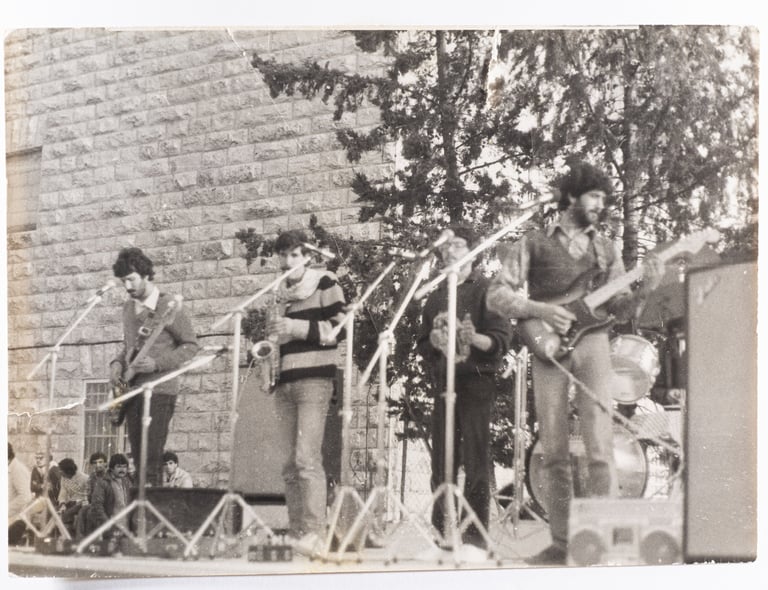

After the release of their first album, the band entered a transitional period marked by attempts at creating and sustaining local productions. During this time, the band began prioritizing local initiatives in terms of both music and writing, incorporating texts and lyrics of prominent Palestinian writers/poets. The band even began to incorporate more eastern and acoustic instruments as opposed to the majority western/electronic instruments used in their first album.
This period happened to coincide with the release of their second album “Dukhan AlBarakeen” (Smoke of the Volcanoes), which saw the group utilize exclusively acoustic and majority eastern instruments such as the Bouzouki and the Qanun. Similar to their first album, “Dukhan AlBarakeen” ended up rejuvenating the approach of Palestinian resistance and touched on the revolution, the withdrawal of Palestinians from Lebanon, and the occupation of Southern Lebanon.
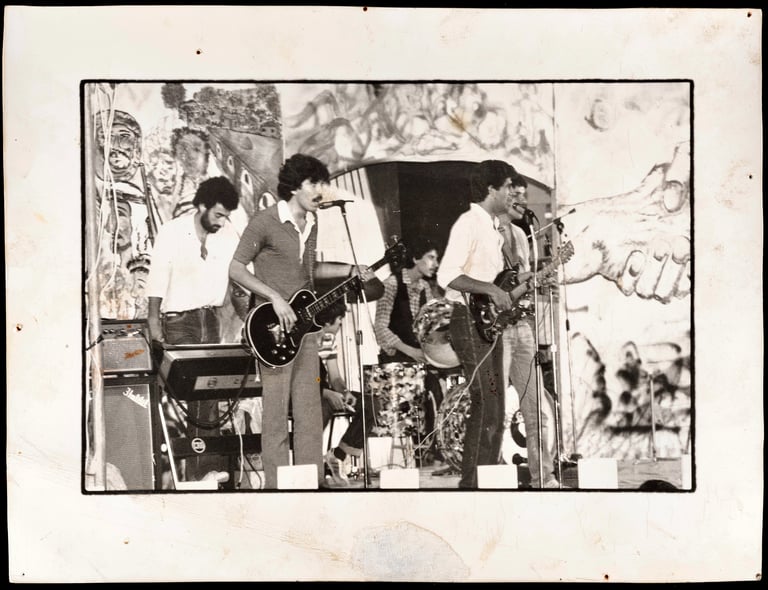

The years following the release of their first two productions saw the band continue their shift from western influences to more regional and eastern approaches while emphasizing the band’s originality. The band also gave up incorporating ready/written texts from prominent Arab poets, with all lyrics now being written/developed by local writers and poets in accordance with the music composition. Sabreen completed their transition to producing contemporary Palestinian music entirely written, composed, and produced locally in spite of lacking local infrastructure and resources typically required to produce music.
This period culminated in the release of their third studio album “Maout el Nabi” (Death of the Prophet) in 1987. The album managed to capture the people’s desire to unite against the obstacles they face in their collective fight for freedom and self determination. The release of Maout el Nabi propelled the rapid growth and support of Palestinian revolutionary ideals, eventually peaking with the first “intifada” or uprising; the first organized and unified form of Palestinian resistance since the 70s. The band’s successful releases of locally written, composed, and produced music garnered them unprecedented levels of local and international support.
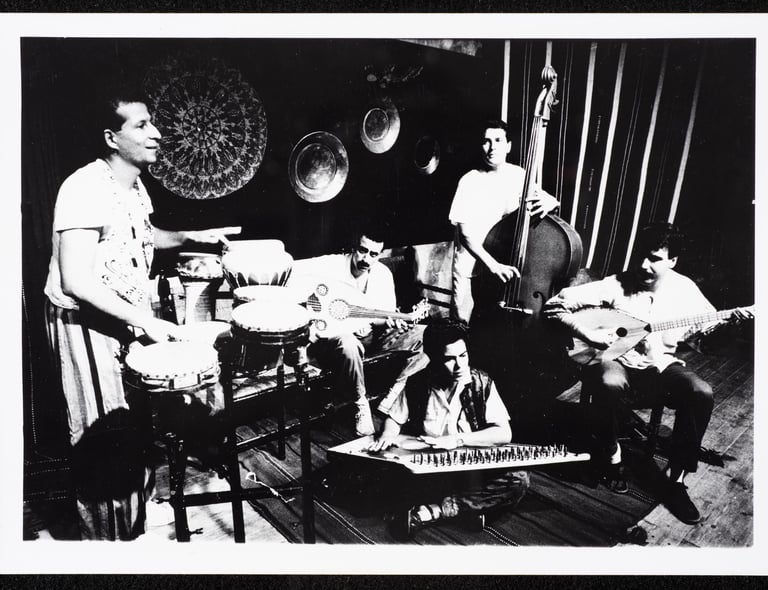

In the years to come the band would establish a center for music development and introduce their contemporary musical program for youth “Bidayat”. The group also went on local, regional, and even international tours, with a majority of their proceedings going back into studio/recording sessions. That was until Sabreen received a grant from UNICEF in 1992 which finally allowed them to establish the first professional recording studio in East Jerusalem; they now had everything they needed to record and produce tracks independently in Jerusalem.
This period rounded off with the band’s release of their fourth studio album “Jay AlHamam” (Here Come the Doves) in 1994, the first album they recorded and produced from start to finish in the Sabreen studio. The album encapsulated the band’s take on this period of change which was filled with hope and aspirations for a better future, mirroring the local socio political aspirations for conciliation and equity in the direct aftermath to the infamous Oslo Accords.
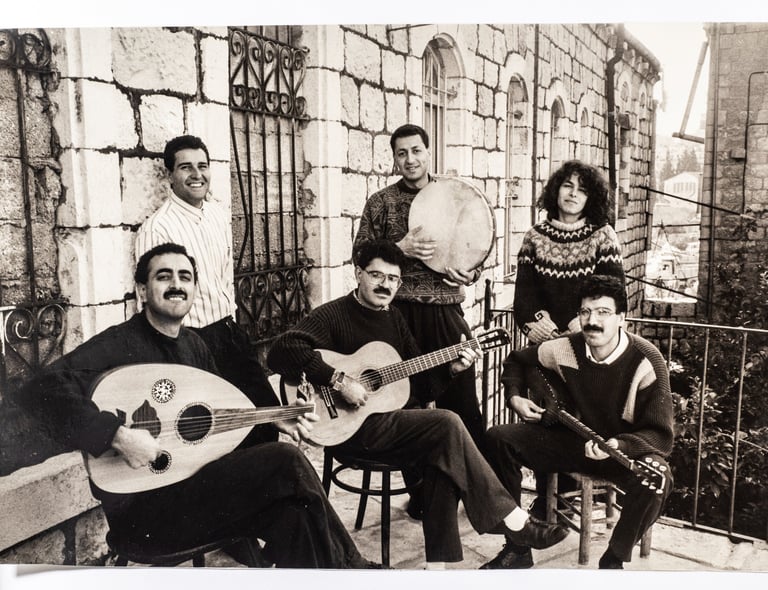

To round off the decade, the band began to fulfill the potential they had to be involved in cultivating an environment that is nurturing for music and art. Having toured many countries and participated in several local and international festivals, the group collaborated in the development of a national policy for culture and education that included music. The Musical dialogue was lifted to another level, involving Sabreen not only as a musical group, nor as a musical organization, but as a contributor to music on a national level.
These developments came in contrast to the prevailing sociopolitical developments in the region, with the Oslo Accords failing to provide the peace and prosperity it promised the region. This era came to a head with the group’s release of their fourth studio album, “Ala Fein” (Where to) in 2000. The album incorporated lyrics written by poets such as Sayyed Hegab, Talal Heidar, and Fadwa Touqan and displayed feelings of nostalgia and despair that arose as a result of the gradual failure of the Oslo Accords.
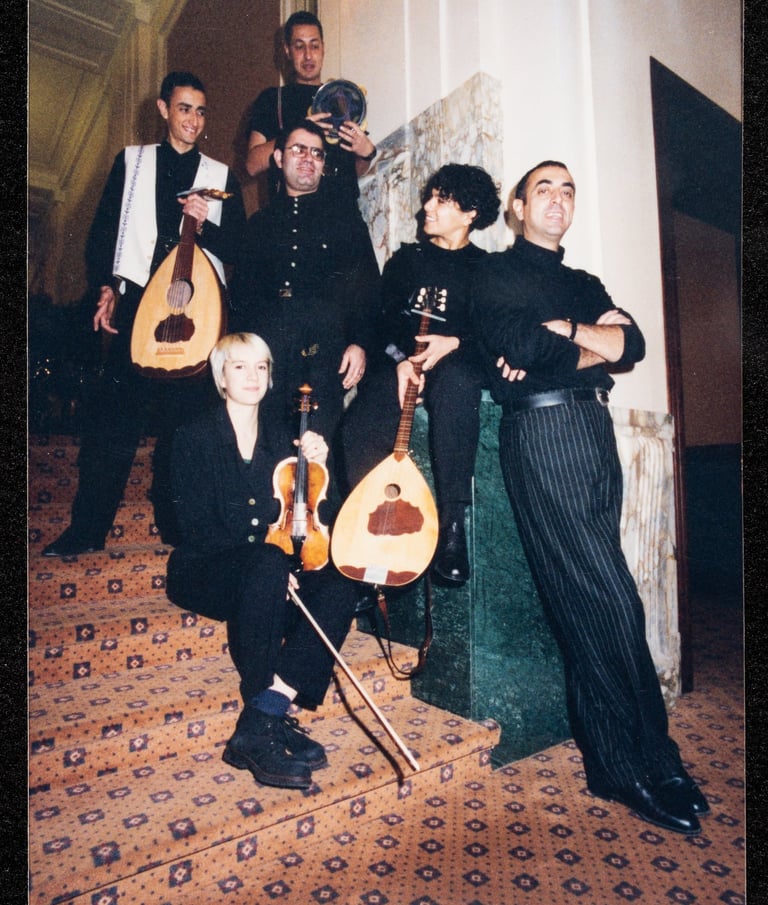

With political instability reaching all time highs amidst the second intifada, paired with the subsequent departure of Kamilya Jubran– the band’s lead singer– in 2002, Sabreen released their fifth studio album titled “Maz'ooj” (Annoyed). A satirical album which saw a complete departure from the band's original sound and style, the electro-infused album included lyrics by Said Murad and vocals by Palestinian actor Mohammad Bakri, Reem Talhami, Charlie Saleh,Hind Ayyoub, and the band’s very own Wissam Murad.
The group strived to remain true to its roots in maintaining a traditional sound, but also to enhance and develop its music by incorporating new sounds. It has a unique musical character, which deliberately tries to evade standard and often dogmatic categorization. This unique blend of music and cultures continue to distinguish Sabreen's music, thus presenting it as a recognized Palestinian and International voice.
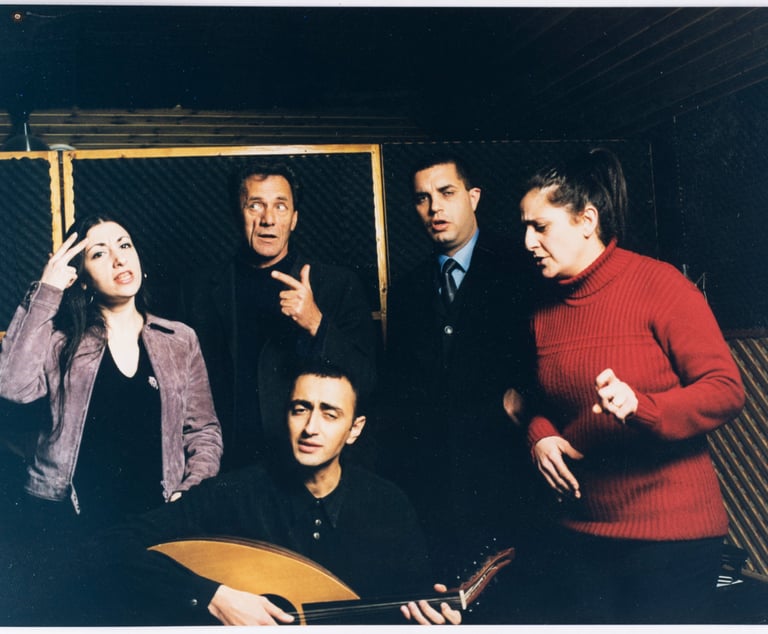

Explore Archive
Explore Sabreen’s extensive archive that spans over 40 years and includes over 2500 photographs
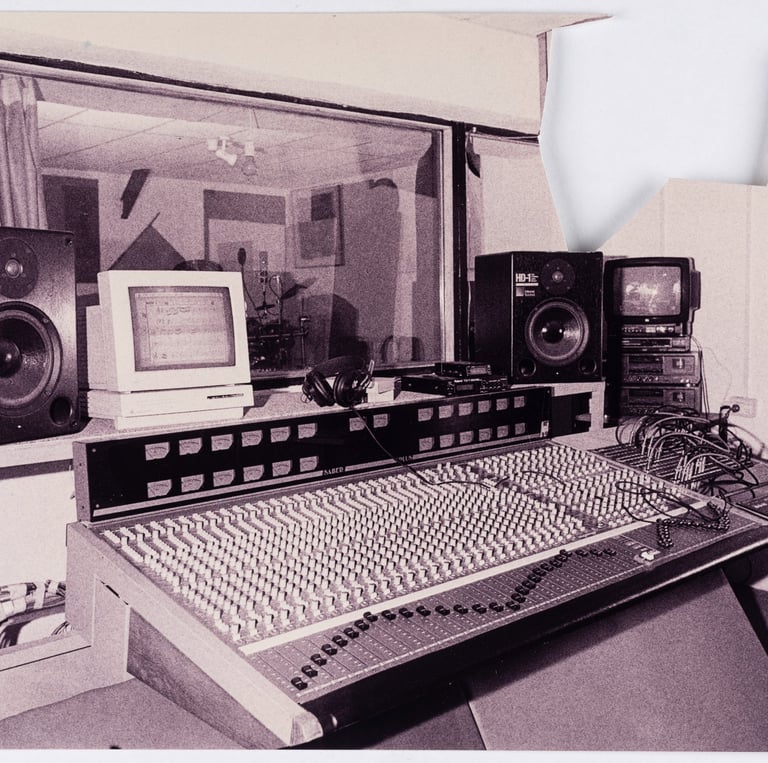

150+
15
Years of experience
Albums

VINYL SALE
Maz'ooj
2002 - Album
Ala Fein
2000 - Album
Smoke of the Volcanoes
1982 - Album
Death of the Prophet
1987 - Album
Here Come The Doves
1994 - Album
Discography

